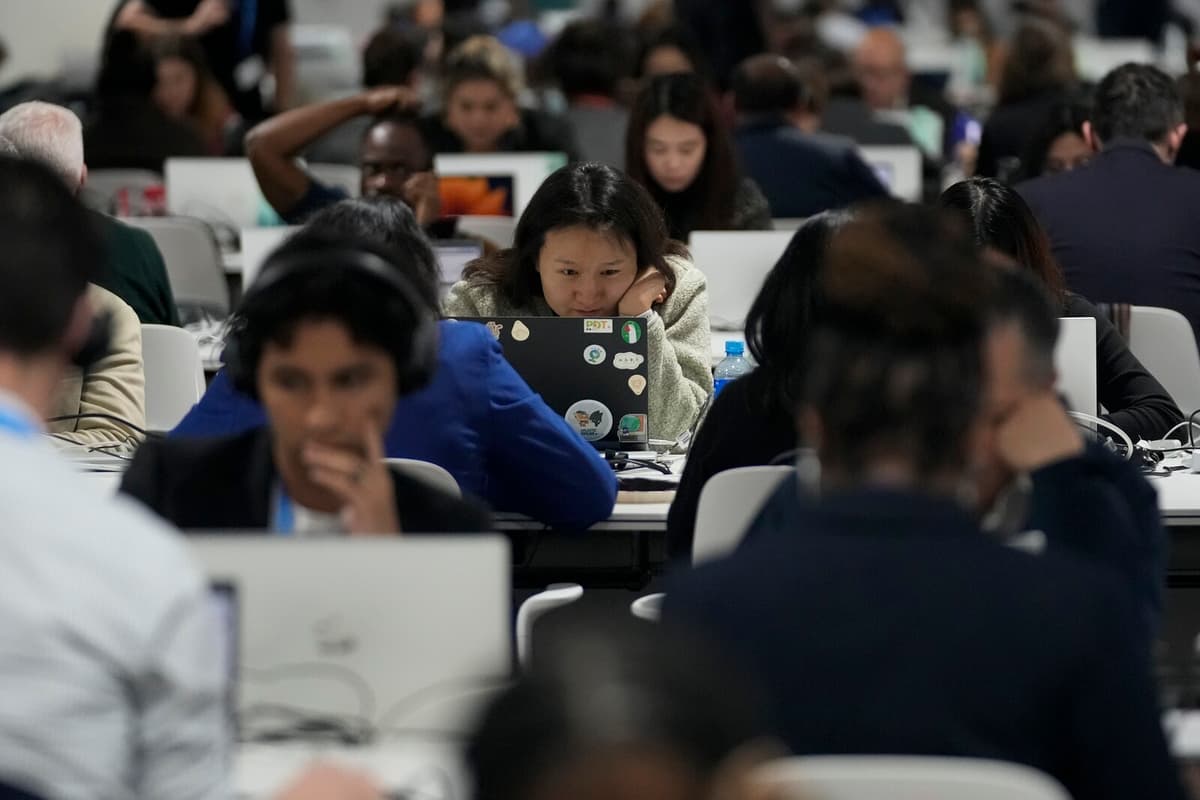A proposal containing figures on how much money rich countries should give to poor countries for their climate efforts was presented for the first time on Friday.
But the figure – 250 billion dollars per year until 2035 – was met with anger from the poorer countries, who are demanding more than five times as much.
The figure must be higher and it needs to be much clearer what should be counted, says Alexandra Scott at the Italian think tank Ecco.
The next draft is crucial
She also thinks that an agreement needs to include clearer formulations regarding emission reductions.
The purpose of the text that is agreed upon here sets the expectations for what countries must have in their national plans to be submitted next year, she says.
She believes that the next draft will be crucial.
If we get a new text on Saturday, it is likely to be the one that will be presented to the parties to agree on or not. And that means there are only hours left to get the strong signal we want to see from Baku – that climate action is still top priority, says Scott.
Laetitia Pettinotti at the British think tank Odi notes that the figure of 250 billion until 2035 is not much higher than the old goal of 100 billion dollars annually set in 2009, if you count with inflation.
So it's a figure that is not acceptable for developing countries, as they themselves have said, she says.
Vague figure
In the draft, there is a target figure of 1,300 billion dollars, but it is so vague that it becomes meaningless.
It is formulated in a way that lacks clarity about who should provide, mobilize or contribute to the 1.3 trillion. Since it is unclear, it is not possible to hold anyone accountable for it, she says.
A difference would be if they could agree that the 250 billion should be pure grants, and not loans.
Currently, it seems to be a deadlock between developed and developing countries, and I'm not sure where they will end up, she says.
A plenary – where the participating countries could say yes to a final document, which would mean that the meeting can be closed – is not planned to be held until at least 10 am local time (7 am in Sweden) on Saturday.






